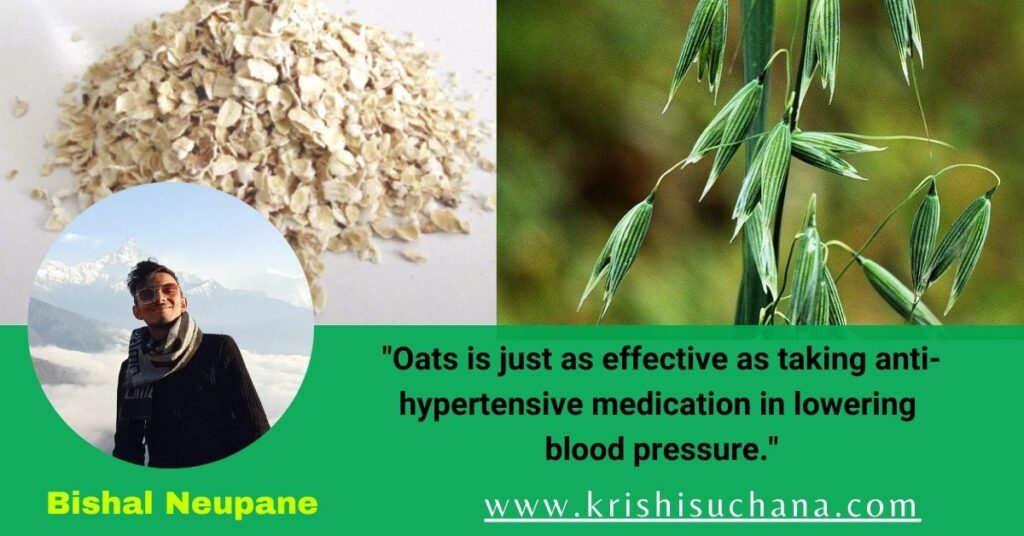Oats – Benefits, Nutrition & Risks

Oats (Avena sativa) are a cereal commonly eaten in the form of oatmeal or rolled oats. According to some research, they may have a range of potential health benefits.
They are mainly eaten as porridge, as an ingredient in breakfast cereals, and in baked goods (oatcakes, oat cookies, and oat bread). Over the past few decades, oats have become a very popular “health food.”
Oats are loaded with dietary fiber (containing more than many other grains) and have a range of healthy cholesterol-lowering properties.
Benefits
The possible health benefits of oats include: reducing the risk of coronary artery disease, lowering levels of cholesterol, and reducing one’s risk of colorectal cancer.
1) Oats and coronary artery disease
Share on PinterestThere may be numerous health benefits to eating oats.
Eating foods rich in whole-oat sources of soluble fiber (oats, oat bran, and oat flour) may help reduce the risk of coronary heart disease.
“Consumption of oats and oat-based products significantly reduces total cholesterol and low-density lipoprotein cholesterol concentrations without adverse effects on high-density lipoprotein cholesterol or triglyceride concentrations.”
2) Colorectal cancer
10 grams per day of fiber in someone’s diet there is a 10 percent reduction in their risk of developing colorectal cancer. “A high intake of dietary fibre, in particular, cereal fiber and whole grains, was associated with a reduced risk of colorectal cancer.”
3) Blood pressure
Oats is just as effective as taking anti-hypertensive medication in lowering blood pressure.
It is said that three portions per day can significantly reduce cardiovascular disease risk in middle-aged people mainly through blood pressure-lowering mechanisms.
4) Digestion and obesity
Share on PinterestOats may help maintain a healthy weight.
Oats may play an important role in improving satiety (the feeling of fullness), diet quality, and digestive, cardiovascular, and general metabolic health.
Regular consumption of whole-grain foods may be correlated with lower body mass index (BMI). The researchers state that eating oats appears to help reduce hunger and increase feelings of fullness.
Also, oats and their fiber content help keep the gastrointestinal tract running smoothly; they can help reduce constipation.
5) Antioxidants in oats
Oats contain a range of molecules that act as antioxidants; this includes avenanthramides, which are polyphenols. Avenanthramides may play a role in keeping blood pressure low by increasing nitric oxide production. They could also have anti-inflammatory and anti-itching properties when applied topically to the skin.
Nutrition
Dietary fiber — oats are rich in a specific type of fiber called beta-glucan. This particular type of fiber is known to help lower levels of bad cholesterol. One cup (80 grams) of dry oats contains 7.5 grams of fiber, the recommended daily intake of fiber is 25 grams for women and 38 grams for men.
Minerals — oats are rich in a range of important minerals, vitamins, and antioxidants. Just 100 grams of oats contain:
Calories — one cup of dry oats (80g) contains approximately 297 calories.
Risks
Although oats don’t contain gluten, in rare cases, they are grown in the same fields as wheat or barley, and these crops can sometimes contaminate oats with gluten. Therefore, those who have gluten intolerance or celiac disease may have to exercise caution when eating oats.
Writer : Bishal Neupane (Student, Bsc. Ag IAAS Paklihawa Campus)

